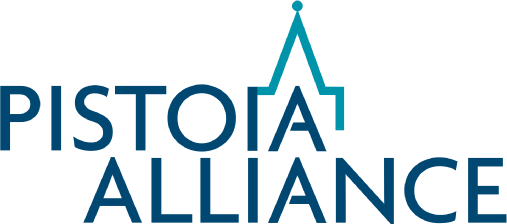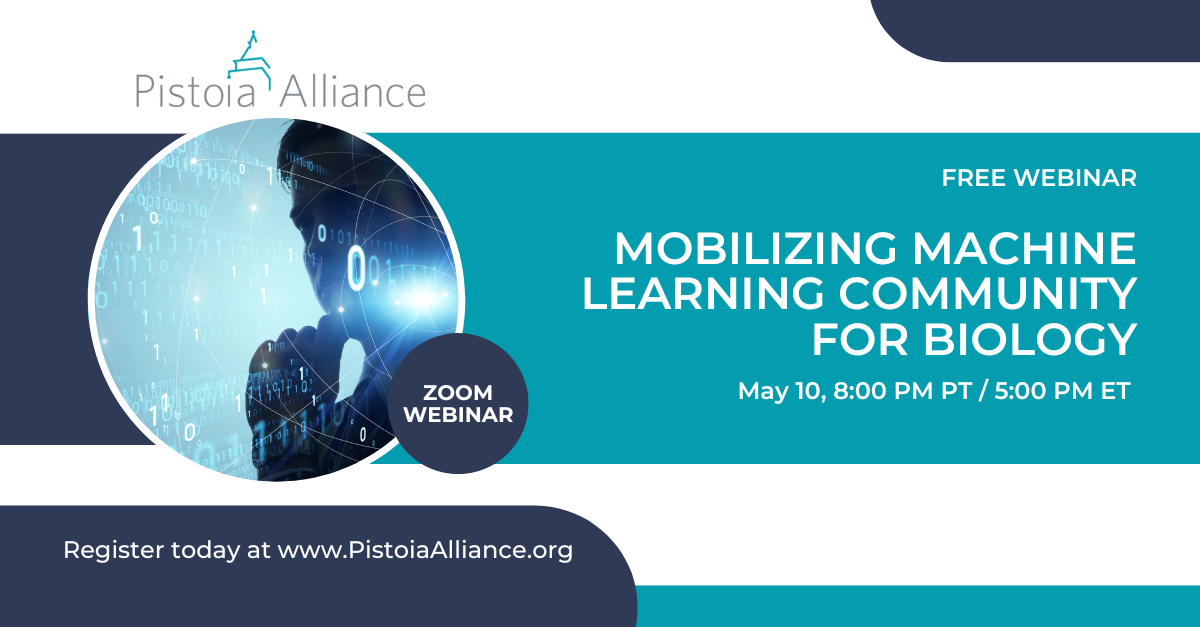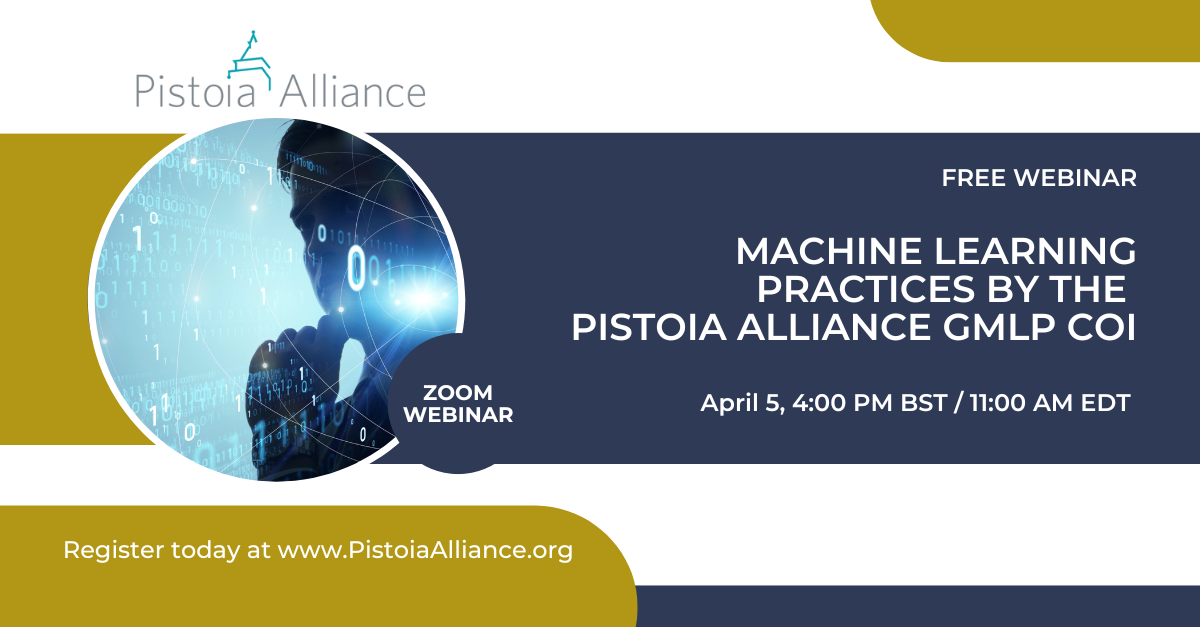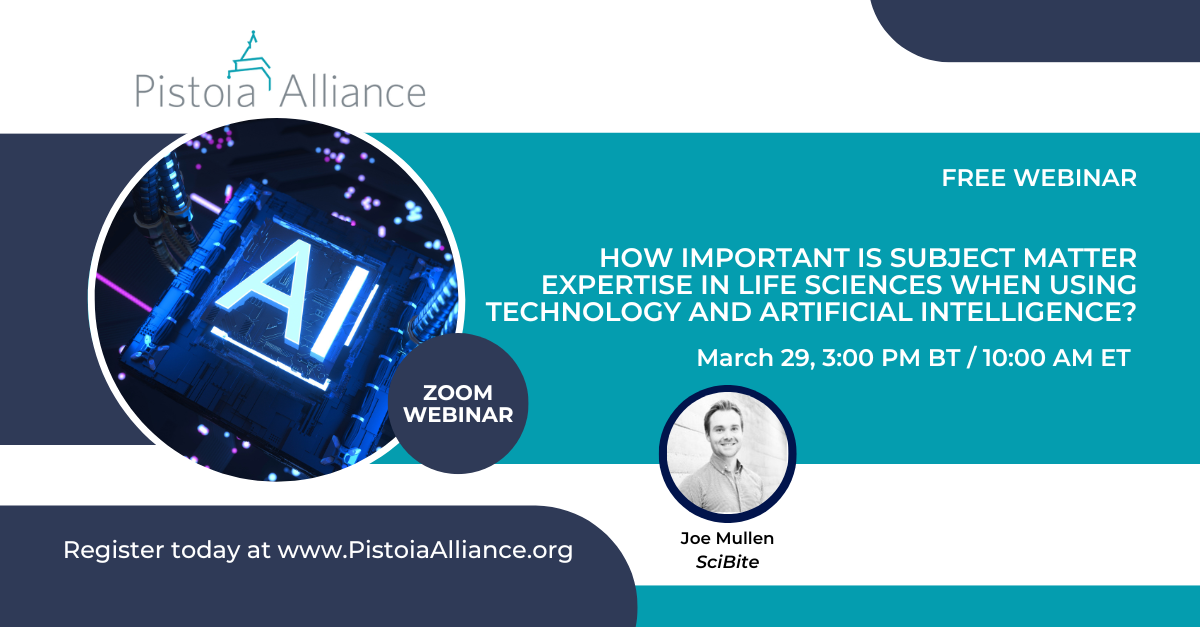Superbio.ai provides datasets, pre-trained AI models, benchmarks, visualization and inference tools, all in a no-code cloud environment, empowering scientists to advance their research with community-driven machine learning. In this webinar, company founder and CEO Berke Buyukkucak will describe his work to democratize the Artificial Intelligence.
Resource Tag: Harnessing AI To Expedite R&D
The NLP Use Case Database Project
Pharma companies apply Natural Language Processing (NLP)
methods in hopes of automation and insight generation, and
many companies are investing in NLP initaitatives to stay ahead of
the competition.
Good Machine Learning Practices
Starting in 2021, a team of Pistoia Alliance colleagues conducted in-depth business analysis centered on the use of AI in the pharmaceutical enterprise, and identified common use cases, challenges, and best practices for application of AI, specific to particular personas. This webinar presents the interim report of the results to-date, followed by the panel discussion by the members of the Pistoia Alliance GMLP CoI.
How Important is Subject Matter Expertise in Life Sciences When Using Technology and AI?
With recent developments in technology, and the accessibility of artificial intelligence models, one must consider the importance of subject matter expertise in ensuring these are used in the most applicable and accurate settings. Further highlighted during a recent well-documented chatbot unveiling, even incredibly well funded efforts can provide factual errors that will only be spotted by such experts. This expert input is even more important in the highly ambiguous, synonymous and complex domain of life sciences. Here, we cover the importance of such expertise in the development, fine-tuning as well as application of, technologies, including artificial intelligence, in the life sciences – also touching on how these can impact end users
Bioassays Have An Integration Problem: Collaboration Will Be Key To Making Them FAIR
Whilst life science companies have come to recognize data as their greatest asset, it is also their greatest challenge. The answers to the biggest questions facing the industry today could already be held within the countless proprietary experiment notes, published literature, and patient records produced in previously conducted experiments. The data landscape is continuously growing in complexity and scale as organizations generate more research, but much of it is siloed in different formats and locations. This makes it difficult to discover, query, and share—rendering data essentially unusable.
Bioassay protocols are one such example where legacy data management systems are holding R&D back, and where adopting the FAIR (Findable, Accessible, Interoperable, Reusable) principles would improve the usability of the data. Bioassay protocols constitute the essential metadata for most of the experimental results collected in the process of drug discovery. While assay protocols are widely accessible—often stored in public data banks—they are universally kept in plain-text formats. This means they are not machine-readable and therefore require manual review, which takes considerable time investment by highly qualified professionals. Scientists must spend significant amounts of time sifting through vast libraries of old records; there are currently more than 1.4 million unformatted bioassays. Pistoia Alliance research found that some researchers may spend up to twelve weeks per assay selecting and planning new experiments.
Good Machine Learning Practices in the Modern Pharmaceutical Discovery Enterprise
We report results of the systematic business analysis of the personas in the modern pharmaceutical discovery enterprise in relation to their work with the AI and ML technologies. We identify 22 common business problems that individuals in these roles face when they encounter AI and ML technologies at work, and describe best practices (Good Machine Learning Practices) that address these issues.
AI / ML in R&D Automation
The Pistoia Alliance is pleased to announce a series of three webinars hosted by Accenture Boston Innovation Hub. As part of our overall theme of Improving the Efficiency and Effectiveness of R&D, each webinar will explore the power of collaboration to solve shared challenges, drive transformation and reduce barriers to innovation in R&D.
How Synthetic Data Is Unlocking a Decade’s Worth of Clinical Trial Data to Power a New Era of Drug Development
Historical clinical trial data (HCT) is emerging as an important source of evidence across clinical development. Data from past trials is often superior to real-world data from EMR records etc. as it is more structured, complete, 100% traceable and contains the typical endpoints and covariates captured in a clinical trial.
Regulators have lately been supportive of the use of HCT data with both the FDA and EMA approving hybrid trials: phase 3 trials where patients from the control arm have been replaced by synthetic patients from past trials. This talk will explore methodologies and use cases for Synthetic Patients – ‘digital twins’ of real patients that replicate their behavior to a very high degree. Synthetic Patients enable easy sharing of patient-level data without risk of subject-level or sponsor disclosure while allowing data scientists to mine deep insights on patient characteristics and behavior.
Speaker
Jacob Aptekar, MD Ph.D., is Senior Director of Product Management at Acorn AI, a Medidata Solutions company and part of Dassault Systemes. Dr. Aptekar has over 10 years of experience as a basic science researcher, business leader, and data scientist. He most recently served as an Associate at McKinsey & Company within their Digital McKinsey practice—working with public and private sector clients who use technology to deliver healthcare and develop therapies. Previously, he founded and led Qurator Inc, a data science company focused on the progression of chronic kidney disease and care planning for dialysis. Dr. Aptekar received an MD from the David Geffen School of Medicine at UCLA, his Ph.D. from UCLA in Neuroscience under the mentorship of Mark Frye, an investigator with the Howard Hughes Medical Institute, and an AB in Physics from Harvard College.
Generative Therapeutics Design: Accelerating Drug Discovery with AI and Machine Learning
The application of Artificial Intelligence/Machine Learning (AI/ML) methods in drug discovery are maturing and their utility and impact is likely to permeate many aspects of drug discovery. Numerous methods, however, utilize structure-activity relationship (SAR) data without explicit use of 3D structural information of the ligand protein complex. Gilead is using BIOVIA’s Generative Therapeutics Design solution (GTD) to take advantage of 3D structural models, i.e. pharmacophoric representation of ligand protein interaction as well as typical docking/scoring steps. Using Gilead’s SAR data set pertaining to the discovery of spleen tyrosine kinase (SYK) inhibitors Entospletinib and Lanraplenib they found that common types of problems in medicinal chemistry can be effectively addressed via GTD.
The JUMP-Cell Painting Consortium
JUMP-Cell Painting Consortium created a new data-driven approach to drug discovery based on cellular imaging, image analysis, and high dimensional data analytics
Trustworthy AI
Our speakers, Navdeep Gill (H2O.ai) and Chas Nelson (gliff.ai) present a perspective on trustworthy and responsible AI.
They discuss various components that contribute to responsible AI and the new ANSI standard “ANSI/CTA 2090 Use of Artificial Intelligence in Health Care: Trustworthiness” and the ways to implement trustworthy and responsible AI in practice covering the whole AI lifecycle.
Valuation of Artificial Intelligence Technology Investments
Today, the hype that surrounded artificial intelligence in the previous years is largely gone, and the industry practitioners are looking for solid use cases and proof of value. Prashant Natarajan, VP of H2O.ai, and Dr. Peter Henstock, ML&AI Technical Lead Technical Lead, Pfizer, will discuss the methods for valuation of artificial intelligence investments in the pharmaceutical industry.



